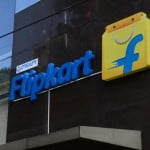
Start-ups such as Grofers and PepperTap recently announced plans to offer consumer companies a platform to display ads on their mobile applications and websites to sustain margins. Photo: Ramesh Pathania/Mint
New Delhi: Are private labels the miracle cure for hyperlocal delivery companies looking to boost profits?
Some hot start-ups in the space think so, their thinking encouraged by investors in an environment where money is slowly becoming scarce.
Grofers and PepperTap, for instance, are looking to launch their own private label products to expand revenue and boost profitability.
The idea isn’t revolutionary. It is one of the reasons why large offline retail chains have store labels.
Grofers (run by Locodel Solutions Pvt. Ltd) and PepperTap (Nuvo Logistics Pvt. Ltd) that currently list neighbourhood stores on their platforms, plan to launch staples such as pulses, rice and oil.
While PepperTap’s products will be called PepperFresh, Grofers said it has not decided on the name it would use.
“Products such as staples have good margins, to the tune of 20-25%. Besides, these are the categories which do not have established brands in the market so far. Our target is not just to expand our source of revenue through this step but also to build a brand around it,” said Ashneer Grover, chief operating officer, Grofers.
The company earns revenue from the commissions it gets from the merchants listed on the site and the advertisements it runs on its platform.
Typically, private-label products have gross margins much larger compared with the commissions that hyperlocal delivery firms get from their merchants, which range between 1% and 5%.
Both companies said they would be procuring staples from wholesale markets and sorting and packing them. Grofers plans to hit the shelf with its products by December end. PepperTap did not share a deadline.
“The product is nearly finalized but we do not have an exact go to date yet. We are working on it,” said Tahseen Quadri, vice-president, marketing, PepperTap.
Mint reported on 7 October (http://mintne.ws/1Nm0JXc) that Grofers is in talks to raise $120 million in fresh capital, largely from Japan’s SoftBank Corp. and Russian entrepreneur and venture capitalist Yuri Milner.
This comes after a failed round of discussion to raise funds from India’s largest e-commerce marketplace Flipkart for a potential strategic investment.
Grofers recently raised $35 million from existing investors Tiger Global Management and Sequoia Capital. In February, both Tiger and Sequoia invested $10 million in the company.
Snapdeal (run by Jasper Infotech Pvt. Ltd) bought a minority stake in PepperTap in September leading a $36 million investment round, which also saw participation from Russia’s Ru-net, Japanese private equity firm Jafco, BeeNext, and existing investors Sequoia India and SAIF Partners.
There is a regulatory hitch, though.
India’s single-brand retailing laws do not allow companies having investments from foreign investors to sell their private label products to consumers directly, according to Aksh Gupt, leader, regulatory services at consulting firm PricewaterhouseCoopers (PwC).
“The companies can, however, do a B2B business. They can sell products to merchants and distributors,” he said.
Grover says Grofers plans to sell its private label offerings to the merchants listed on its own platform, who can sell them through either its online platform or offline through their retail stores.
He said the company expects 20-30% of its business to come from private labels by December 2016.
Currently Grofers has over 5,000 merchants across 27 cities on its platform, while PepperTap has 200 merchants across 18 cities.
Private labels come with their own set of risks, according to Rohit Bhatiani, director at consulting firm Deloitte in India.
“There is an inventory risk because the companies are procuring and doing the packaging and then selling the products. There will be larger working capital requirement. Also, in certain commodities, such as pulses, there are instances of price fluctuations. This could erode away all their margins,” he said.
Grofers and PepperTap recently announced plans to offer consumer companies a platform to display ads on their mobile applications and websites to sustain margins.
Online grocery store BigBasket also sells private label items such as fruits, vegetables, meat and bread under the brand name Fresho and staples under the Popular and Royal brands. In June, the company said that private-label offerings account for about 35% of its revenue.
[“source -livemint”]




